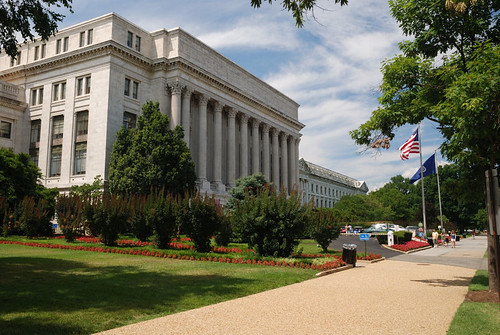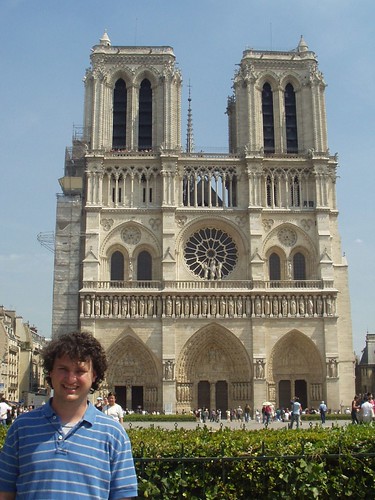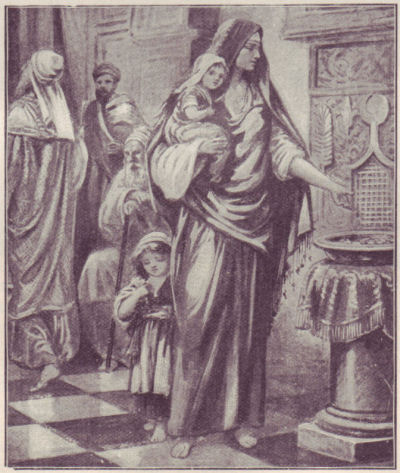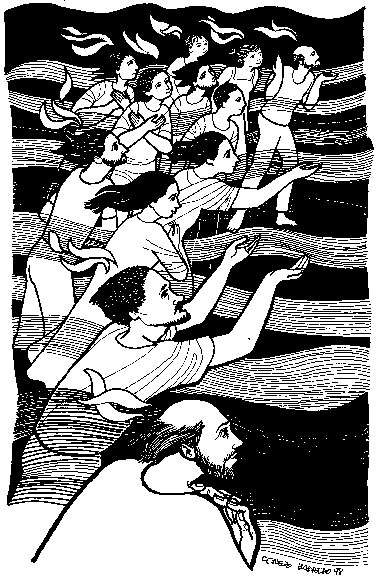Acts 2:42-47
They devoted themselves to the apostles' teaching and fellowship, to the breaking of bread and the prayers. Awe came upon everyone, because many wonders and signs were being done by the apostles. All who were believed were together and had all things in common; they would sell their possession and goods and distribute the proceeds to all, as any had need. Day by day, as they spent much time together in the temple, they broke bread at home and ate their food with glad and generous hearts, praising God and having the goodwill of all the people. And day by day the Lord added to their number those who were being saved.
We just finished class and a hearty discussion about this text.
The question was posed, "How is this and similar texts presented in our churches? What are our experiences with such New Testament idea(l)s?" Is it an ideal? Many historical critics and NT scholars in general are presuming that when Luke wrote this to old Theophilus that it was an ideal he was adapting or borrowing (?) from different, nonScriptural sources. Plato said that an ideal society exists when the philosopher calls nothing his own, or something like that. Yet, even before class I would have disagreed with this assessment. It sure seems like a theological and ethical cop-out if I've ever heard one.
Or how 'bout this one? On the other extreme it presents a picture of the first community church that had their members on an entirely equal economic ground. Everyone is called to be the rich young ruler and sell everything for everyone else. Sort of a forced poverty, but not really, because everyone is sharing with everyone else. Maybe I'm just thinking of Shane and his monastics again. (Have you noticed I have a bit of a beef with them, albeit a bit unjustly I admit--don't even ask my community group how I really feel. ha. Did he talk about this during his "s
peaking of faith" interview with
Krista Tippett?) In
medieval church history it certainly was left to the monks and nuns living in monasteries who were the only ones called to live this ideal through their vow to poverty and communal dwelling. --Too bad that all fell apart when the monasteries started acquiring land and tax payments, and alas, mass amounts of wealth...and, yep, you guessed it, corruption.
Then again, maybe this perfect idea of economic equality isn't so far from the truth for Luke. The Essenes migrated away from Jerusalem city politics that were surrounding the temple while they were waiting on the arrival of the Messiah by moving out to the dessert. The Dead Sea Scrolls are often attributed to this people group; I'm inclined to agree. The community scroll describes how they shared everything and lived together. Even first-century historian, Josephus wrote of this desert-dwelling cadre, "You will no where see abject poverty or inordinate wealth [among them]" (Jewish Wars, 2.122). This historical data seems to contradict the NT scholars who argue against any literal interpretation regarding shared resources and a common purse.
Then again, if Luke is telling the truth and these people shared all material goods, this presents a pretty intense way to live. There is a reason the rich young ruler left his meeting with Jesus greatly grieved by the prospect of selling it all. eek. Yet, we also see lots of Scriptural examples where people didn't have to give EVERYTHING: Zacchaeus, Cornelius, Dorcas (I'd be happy to give references if anyone cares to have them) all gave portions. Regardless of the command to give it all, or give a little, or give a lot, the point is, GIVE GIVE GIVE. These freshly gathered, Holy-Spirit-holding, communal commoners knew well their mission once Peter finished the sermon. They were to embody the Kingdom of God that had been shown to them in and through Christ Jesus; they were to care for the poor as part of that mission. Again, it's all about DOING kingdom work rather than believing in a kingdom creed.
I remember growing up and jealously reading this passage from Acts as a teenager wondering what kind of power must have been with these people that the Lord was adding to their numbers DAILY those who were being saved when I was working so hard to live the "Christian life" in high school. I couldn't understand why none of my classmates cared about God's message for them. But I was missing the whole point. It's not about the number of people that were assured of a place in heaven when they died that Luke used the word "saved." (Actually, I think probably most people in my high school class cared quite a bit about God.)

Instead, doing church in this way, in this way of equality and caring for, as Matthew called it (in chapter 25), the "least of these", doing church in this way is most assuredly going to continue bringing in people to the community, especially the people who are in need! duh! (Not that all of my attempts to be contagious and holy in high school were in vain, that's not my point.) My point is, that God was adding to their numbers daily because the disciples and people were doing work that needed to be done and work that no one else was doing. And of course it says they're being saved--saved from destitution, hunger, injustice, general marginalization and strife! It's so clear, and so much easier to do church in this way instead of in a way that promotes rigid belief and such misunderstanding. It makes me feel sad that such a life-changing message has been so corrupted by all of us, by all of us, I mean humanity.
When I'm a pastor, come to my church b/c I've got this whole way of being church figured out. It's really not that hard. (--I am going to invent a key on all keyboards that people can use when they want to convey sarcasm in their typed thoughts.)
My parents and their good friends have recently begun a
new church centered on acts of service. Their motto, not that they have it all figured out either, is, "Love God, Love People, Bless the World."
Every time I say it, it prompts an emotional response in me. Surely God's heart is also swelling with satisfaction and celebration, that even after a few short months of meeting together their numbers are truly growing daily with those who are being saved because their focus is on doing kingdom work. They deliver groceries, clean apartments on the brink of being condemned, rescue single mothers from loosing their children as a result of no household furniture, and the list goes on.
"...All who believed were together and had all things in common..."
As a class member today said, this sort of faithful living "sells itself." And who was it that said "faith without works..." You know the rest, but that's for another post.
I can't end without noting that together they broke bread, ate with generous hearts, praised God and had goodwill toward all people. I think it no coincidence that when we are truly serving others we cannot help but to love them as Christ does and overflow with wishings of goodwill for them.
















